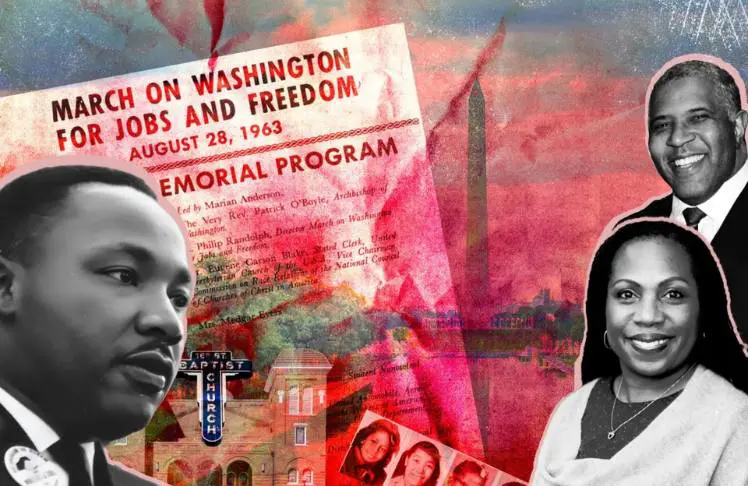
As we acknowledge the 60th anniversary of the 1963 March on Washington and the 1963 bombing of 16th Street Baptist Church, which killed four little Black girls in Birmingham, Alabama, I am reminded of the resilience of Black people.
The recent speech made by Black businessman and philanthropist Robert Smith at the March on Washington and the first Black female Supreme Court Justice Ketanji Brown Jackson’s keynote comments at 16th Street Baptist speak “Truth to Power.”
Smith, the billionaire CEO of Vista Equity Partners and the richest African American, reflected on his economic justice comments in his Linkedin post and wrote, “Black Americans continue to break significant barriers in our society but still endure systemic obstacles…Despite these hindrances, Black Americans persevere, remain steadfast and work to shape the future of this country. Yet, there remains a struggle for relevance, a sense of belonging and ownership of this nation.”
During the March on Washington observance, Smith stressed to Black America that “We are enough,” encouraging us to take it upon ourselves to “build the economic infrastructure needed to bridge the #racialwealthgap. And it is up to us to invest in #education, digital #technology and the talent pipeline to help close opportunity gaps that affect Black Americans, including the #generationalwealthgap.”
His words resonated with me as I thought of our proactive fights as Black people against slavery, lynchings, and police killings, and for voting rights, economic equity, and quality education.
We have a history of fighting the good fight, focusing on our collective strength instead of individual agendas.
- We excelled with “Black Wall Street,” a thriving business district in Tulsa, Oklahoma, in the early 1900s. As Black people achieved against the odds and demonstrated their resilience, they were confronted by those who envied their accomplishments and tried to erase their existence.
- Here in Houston, we celebrate the accomplishments of four formerly enslaved people who, in 1872, united to purchase 10 acres of land to commemorate their freedom and named the land Emancipation Park in the historic Third Ward.
- In December 1955, following Rosa Parks’ refusal to give up her bus seat to a white man, Black people in Alabama began the https://wordinblack.com/2021/12/the-montgomery-bus-boycott-66-years-ago-this-week-roused-people-across-the-nation-to-demand-equal-rights/Montgomery Bus Boycott. For 381 days, they gave up their time and convenience, and walked — sometimes using other forms of transportation — facing harassment and the loss of jobs. The bus company suffered financially as the city became desperate to end the boycott.
These three incidents showcase our abilities to shape our destiny despite the odds. Our historical journey is a reflection of our resilience and is based in truth. A “truth” Supreme Court Justice Jackson spoke about during her recent remarks at 16th Street Baptist Church.
Never forget ‘We are enough.’
“The work of our time is maintaining that hard-won freedom, and to do that, we’re going to need the truth — the whole truth — about our past,” she said.

“We must teach it to our children and preserve it for theirs,” Jackson said. “Knowledge of the past is what enables us to mark our forward progress. If we’re going to continue to move forward as a nation, we can’t allow concern about discomfort to displace knowledge, truth, or history.”
When we acknowledge our past accomplishments and traumas, and embrace our present abilities and capacity, then we can shape our future and continue to show our resilience.
Never forget “We are enough” because today, we can collectively make the change we want tomorrow.
Sonceria “Sonny” Messiah Jiles is CEO of the Houston Defender Network















